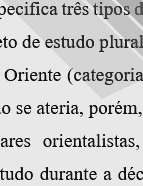

Vasconcelos Abreu sought to write a monumental history of the Portuguese presence in Asia, a project which he claimed to contribute to with fragments that he published throughout his career, devoted both to the teaching of Sanskrit and to the comparative study of religions, mythographies and literary traditions from a philological perspective. Having achieved a bachelor’s degree in maths at the University of Coimbra, Vasconcelos Abreu went on to study naval engineering at Lisbon’s Naval School, before undertaking studies in Oriental philology, specializing in Sanskrit, from May 1875 to July 1877. These studies were carried out at Paris’ École Pratique des Hautes Études and the University of Munich, in Germany, from which he departed with a letter of recommendation from Martin Haug. To this end, the orientalist received a grant from the Portuguese Ministry of Foreign Affairs to engage in studies which would allow him to gain “knowledge of the social and moral state of the indigenous peoples of the colonies” (Abreu, Investigações, 1878, p. 5, n. 2), knowledge which would be essential for the development of more effective direct administration policies and colonial practices. Vasconcelos Abreu argued in favour of the need to educate in order to better manage and maintain a country’s colonies, and had a particular interest in Portuguese India, which could perhaps be rehabilitated as the jewel in Portugal’s imperial crown in a similar fashion to its British counterpart – although Africa would ultimately represent the country’s last hope for national redemption (Catroga, “A história começou a Oriente”, pp. 227-230). He therefore supported the creation of an educational institution in service of the Portuguese state: an Oriental and Overseas Institute, which would promote a colonial scientific education. He presented this project in the Boletim da Sociedade de Geografia de Lisboa [Newsletter of the Lisbon Geographical Society] in 1890, taking inspiration from existing colonial schools in England, France, the Netherlands and Germany, that is, European powers that had already consolidated their empires. It was Portugal’s Colonial School, created in 1906 under the auspices of the Lisbon Geographical Society, which would ultimately fulfil this role. The School housed an Institute of African and Oriental Languages, which, until 1974, taught Arabic, Sanskrit, Konkani, Tetum and Chinese, revealing a utilitarian vision of education, specifically oriented towards “agents of overseas administration” (Thomaz, “Estudos árabo-islâmicos e orientais”, 2012, p. 15).
As for David Lopes, he undertook his higher education at institutions which sought to give pedagogical solutions to the colonial interests of their governments. A self-professed disciple of Alexandre Herculano, the first Portuguese Arabist taught as professor of Arabic at the Faculty of Letters of the University of Lisbon from 1914 to 1937, taking up the post after an interregnum of almost 45 years following the abolition of the chair, then held by Augusto Soromenho, at the secondary college Liceu de Lisboa in 1869. Lopes initiated his higher education in Paris, where, between 1889 and 1892, he simultaneously attended the École des Langues Orientales Vivantes and the École Pratique des Hautes Études. Upon his return to Lisbon, he entered the Curso Superior de Letras in the category of ordinary student and completed it in 1895. At the Curso he was a student of Vasconcelos Abreu, Consiglieri Pedroso, Adolfo Coelho, Teófilo Braga, Augusto de Sousa Lobo, and Jaime Constantino de Freitas Moniz.
